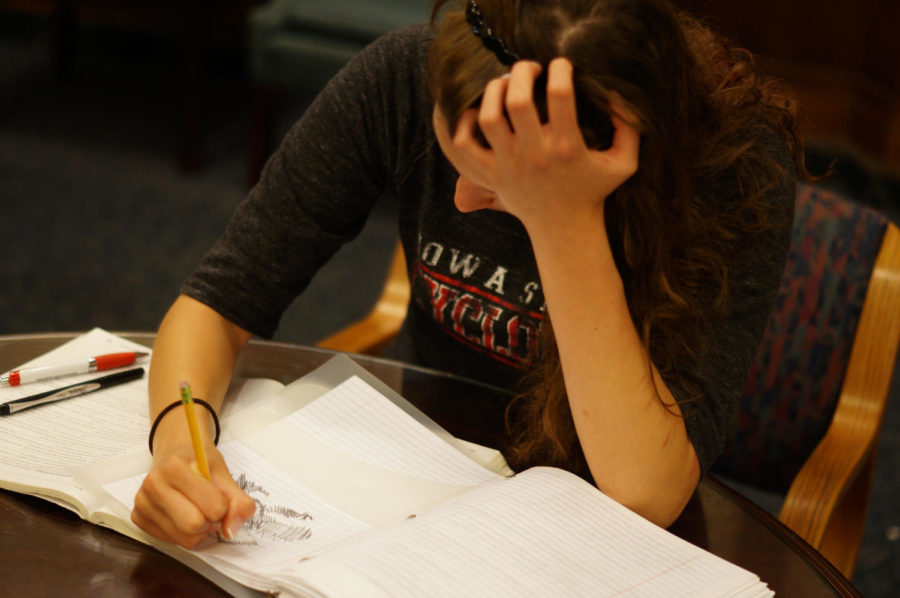Types and symptoms of anxiety disorders
Photo: Jessica Langr/Iowa State
Those who battle anxiety don’t always recognize what they’re doing to themselves by bottling up stress. That constrained pressure can release into terrifying episodes, or panic attacks, and sometimes have no trigger at all.
September 17, 2014
In today’s column from the ISD editor-in-chief, Koenigsfeld talks about what an anxiety attack feels like, why he wait so long to get help and how that was wrong of him. Koenigsfeld calls on ISU students to seek help early rather than later. Below are some quick tips on how to recognize anxiety.
Social Anxiety Disorders
This can also be called phobia. A person with Social Anxiety Disorder has an excessive and unreasonable fear of social situations. This can cause self-consciousness toarise from a fear of being closely watched, judged or criticized by others. Some symptoms or signs of Social Anxiety Disorder are:
-
excessive, unreasonable fear of situations
-
afraid he or she will look bad and make mistakes causing judgement
-
leads up into panic attack
-
intense nervousness in regards to social situations
Specific Phobias
Some of the most common phobias are arachnophobia, the fear of spiders, or claustrophobia, the fear of small spaces. Phobias are usually triggered by something but are still a form of anxiety. These are some of the triggers:
-
Brought on by specific situations or objects
-
long-lasting, unreasonable fear
-
includes animal phobias, situational phobias, natural environment phobias, etc.
Panic Disorder
A panic disorder is different from the normal anxiety. A panic disorder is a serious condition that occurs without reason or warning. Panic attacks are the most common effect of panic disorders. Some symptoms can include:
-
Difficulty breathing
-
Sudden attacks of fear and nervousness
-
Sweating and racing pulse
- Tingling or numbness in fingers and toes
-
Intense feeling of impending doom
- Trembling or shaking
-
Fear of having another attack
- Fear of losing control or that you’re going to die
Generalized Anxiety Disorder
Generalized Anxiety Disorder is a lot like a panic disorder. Generalized Anxiety Disorder has similar symptoms as a panic disorder, obsessive-compulsive disorder and other types of anxiety disorders, but they’re all different conditions. Some symptoms include:
-
Affects thinking and leads to physical symptoms
-
Excessive, ongoing worry and tension
-
Muscle tension
-
Tiredness
-
Trembling
All information retrieved form WebMD.com and Mayoclinic.org






